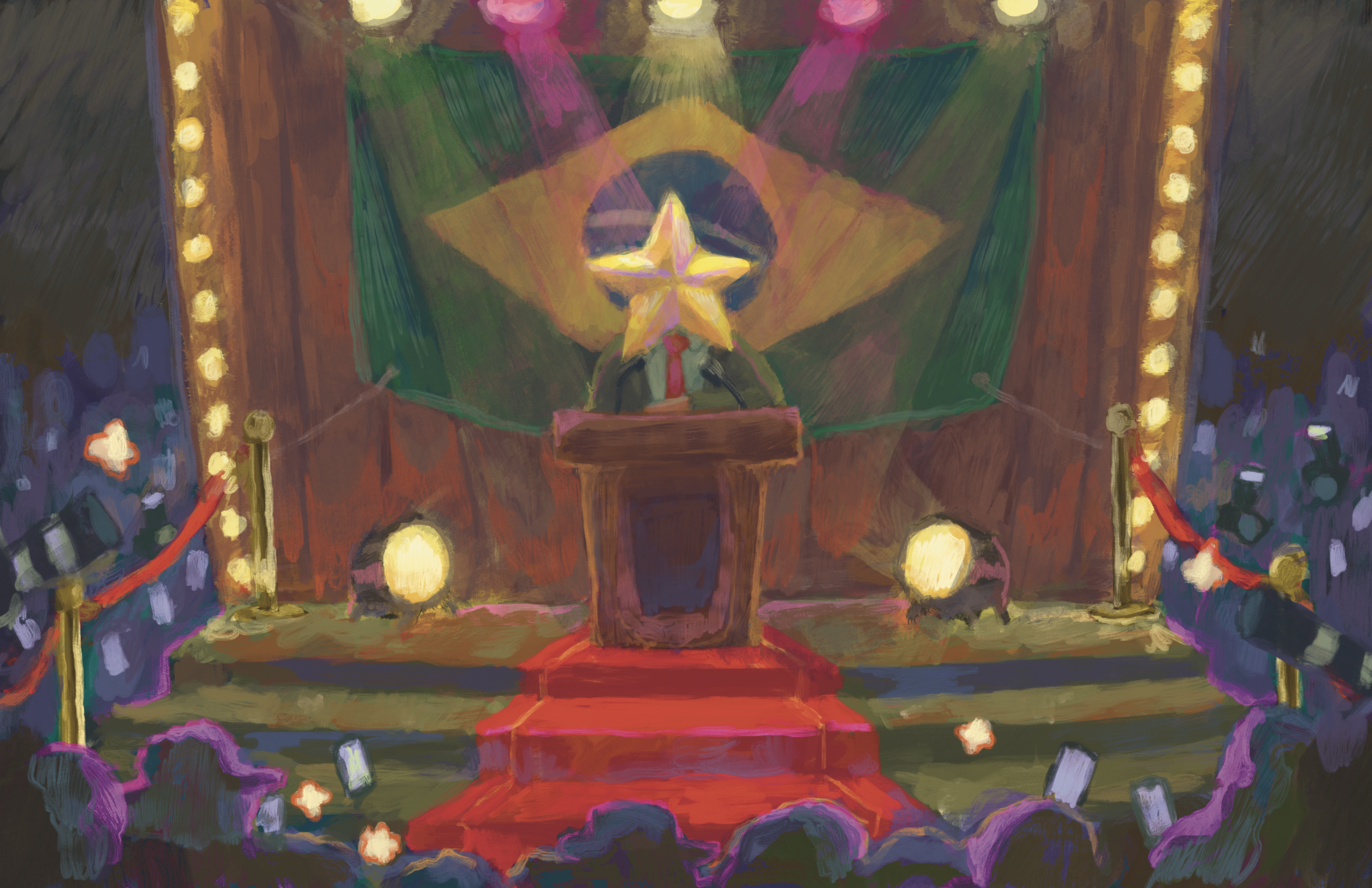Flordelis dos Santos de Souza’s life sounds like something out of a daytime soap opera. The Brazilian gospel singer, who first rose to fame as a pop star, expanded her brand into philanthropy, hoping to run for office. On these credentials, de Souza ran for and was elected as a Federal Deputy of Brazil in 2018. At this point, this story may not seem shocking; plenty of entertainers have made the leap into politics. For de Souza, however, everything changed in 2020; her untainted public image was shattered after she was accused of ordering the murder of her husband, who also happened to be her adopted son. The fact that de Souza could be involved in this murder scandal was a shock to many, but it was not completely unheard of. After all, she is just another instigator of scandal in Brazil’s political tradition of corruption, cronyism, and, most notably, celebrity.
Along with de Souza, several public figures have made their way into Brazil’s Chamber of Deputies over the years, including singer Agnaldo Timóteo, soccer player Romário de Souza Faria Lima, and professional clown Tiririca. Though celebrities like these may not have governmental experience, they have likely been aided in their quest for high office by the Brazilian media’s tendency to contextualize national politics as a form of entertainment. The prevalence of celebrities in Brazilian politics elucidates a pattern: In Brazil, politics and entertainment are unmistakably intertwined.
To understand why scandal-ridden celebrities often go hand-in-hand with Brazilian politics, it is essential to examine the primary mechanism that has turned public office into a space for public entertainment: the media. In Brazil, the media has a long history of using flashy and shocking politics to attract viewers, a phenomenon led by Brazil’s largest news agency, Globo. For decades now, Globo has worked to perfect the art of politics as entertainment. This began in the 1960s, when O Globo—Globo’s main newspaper—first started acting as a propaganda machine for Brazil’s ruling military junta. Eventually, fueled by the support of the ultra-conservative dictators of the military era and capitalizing on the sweeping censorship of all other outlets, Globo established itself as the dominant force in Brazilian mass media. This meant that Brazil’s citizens, with no other meaningful way to participate in politics, would largely look towards Globo to provide them with an entertaining political spectacle.
While in 2013 O Globo issued a lengthy apology for its actions and support of Brazil’s past military dictatorship, it continues to act as a media powerhouse that blurs the line between politics and entertainment. Even when the suppressed market of the military regime gave way to free competition, O Globo found a new way to maintain its iron grip over entertainment politics by providing a platform for celebrities entering the political field. In recent years, O Globo has turned towards politicians like the humorous Tiririca to up its viewership, even if doing so comes at the cost of undermining serious politics. Tiririca, for example, graced the screens of many while dressed in a clown costume, touting satirical slogans and claiming to have no policy positions at all. It might seem that Tiririca’s sheer power as an entertainer earned him a spot in the Chamber of Deputies, but his rise to political stardom would not have been possible without the platform provided to him by a willing media. In an election that begged for discussion of pressing issues, like the corruption running rampant in Brazil’s public offices, the people’s attention was diverted by a literal clown. The media did not just stand idly by while this happened; instead, they encouraged it.
What lies at the heart of the issue is the fact that O Globo, along with a handful of entertainment billionaires, have a stranglehold over Brazilian media. When the primary curators of public information value viewership over substantial political discourse, it is not surprising that political news has become intertwined with entertainment. Even more troubling is the fact that the media alters people’s perceptions of their own country, and in Brazil, this means that public office has become a space that neither its citizens nor its politicians can take seriously. Corruption, scandal, and political ineptitude are not unheard of in politics. But by giving a platform to celebrities and others who value showiness over policy, Brazil’s media has manufactured a unique space wherein these harmful practices don’t just exist: They thrive.
Using colorful distractions and mainly leftist bogeymen, O Globo has painted a picture of Brazilian politics that is completely disconnected from reality. But while Brazil’s political parties and TV networks believe that people can be distracted by sex, singers, and clowns, there are real issues in Brazil’s political atmosphere that need to be addressed. It is up to the media to finally point national attention in a different direction and take the spectacle out of politics.
